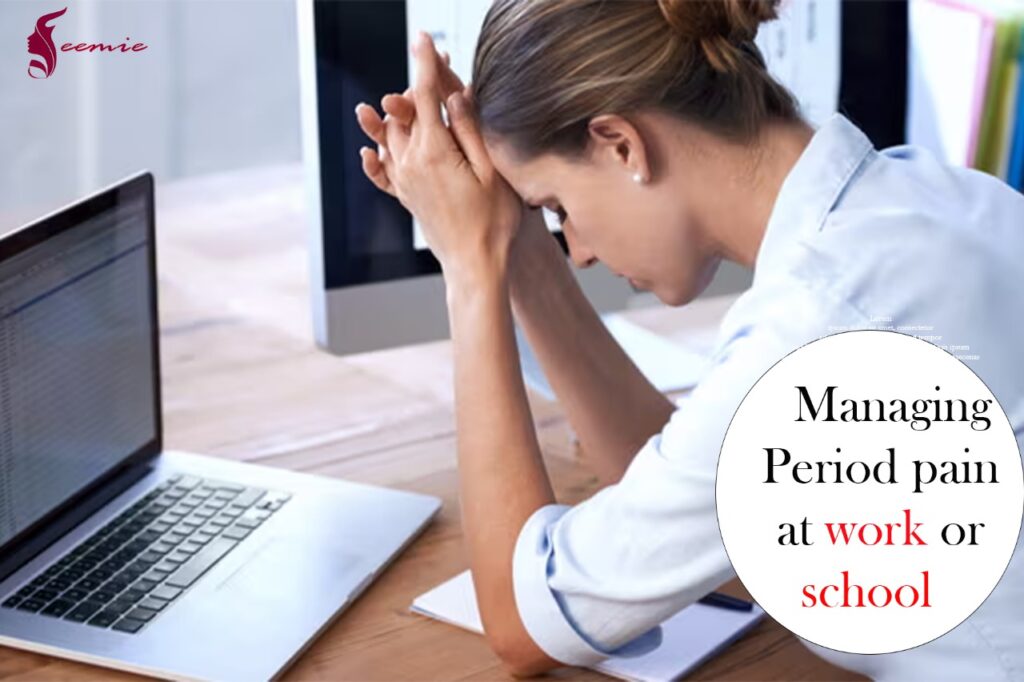
- Home
- Blog
- Managing Period Pain at Work or School
Managing Period Pain at Work or School
Managing period pain can be challenging, especially when you have to juggle work or school responsibilities. The discomfort and distractions can affect your productivity and focus. However, with the right strategies and tools, you can alleviate discomfort and stay on top of your tasks. In this article, we’ll explore practical advice for managing period pain while at work or school, including discreetly using pain relief devices and coping strategies for staying focused and productive.
Tips for managing period pain
1. Understand Your Body:
First and foremost, it’s crucial to understand your body and menstrual cycle. Track your periods using apps or calendars to anticipate when your period might start. Being prepared allows you to implement strategies before the pain becomes too severe.
2. Choose Comfortable Attire:
Wearing comfortable clothing can make a significant difference in managing period pain. Opt for loose-fitting clothing that doesn’t constrict your abdomen. Additionally, choose fabrics that are gentle on the skin, such as cotton, to minimize irritation.
3. Maintain Proper Posture:
Maintaining good posture can help alleviate back and abdominal pain associated with menstruation. Sit up straight in your chair, and consider using a supportive cushion or ergonomic chair to provide additional comfort and support.
4. Utilize Heat Therapy:
Heat therapy is a natural and effective way to relieve menstrual cramps. Consider using a portable heating pad or heat patch that you can discreetly wear under your clothing. Apply heat to your lower abdomen for 15-20 minutes at a time to help relax cramped muscles and reduce pain.
5. Stay Hydrated and Nourished:
Dehydration can exacerbate menstrual symptoms, so it’s essential to stay hydrated throughout the day. Drink plenty of water and avoid caffeinated beverages, which can contribute to dehydration. Additionally, maintain a balanced diet rich in fruits, vegetables, and whole grains to provide your body with the nutrients it needs to function optimally.
6. Take Regular Breaks:
Don’t hesitate to take short breaks throughout the day to rest and alleviate discomfort. Stand up, stretch, or take a brief walk to improve circulation and reduce tension in your muscles. Even a few minutes of relaxation can help recharge your energy and focus.
7. Practice Stress Management Techniques:
Stress can worsen menstrual symptoms, so it’s essential to practice stress management techniques to promote relaxation and well-being. Deep breathing exercises, meditation, or mindfulness can help reduce stress levels and improve your ability to cope with discomfort.
8.Communicate Your Needs:
If you’re experiencing severe period pain, don’t hesitate to communicate your needs to your employer or teachers. They may be able to offer accommodations such as flexible work hours, breaks, or alternative assignments to help you manage your symptoms effectively.
Conclusion
Managing period pain at work or school requires a combination of proactive planning, self-care strategies, and open communication. By understanding your body, implementing practical tips for pain relief, and prioritizing your well-being, you can navigate menstruation with greater comfort and productivity. Remember that it’s okay to prioritize your health and take the necessary steps to manage period pain effectively.



